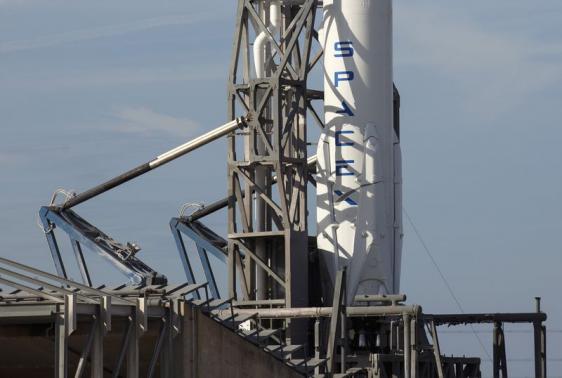SpaceX rocket launch: world's first all-electric satellites get lift off

A Space Exploration Technologies rocket took off from Cape Canaveral Air Force Station on Sunday, carrying the world's first all-electric communications satellites to be put into orbit. The 22-storey tall booster blasted off from its seaside launch pad at 10:50 a.m. EST, marking the third flight in less than two months for SpaceX. The privately owned, California-based company also undertakes cargo missions to the International Space Station for NASA and is currently building an upgraded spaceship to fly astronauts in the near future.
The two all-electric satellites belonging to Eutelsat and Asia Broadcast Satellite were built by Boeing and will distribute television programming, Internet and mobile phone connectivity across the world. Instead of the conventional chemical propulsion systems, the pair of satellites were outfitted with lightweight, all-electric engines to allow them to reach and maintain orbit.
The use of a new electric propulsion system, powered by xenon-ion thrusters, makes the satellites much smaller and lighter, allowing them to be loaded together into one Falcon 9. However, electric propulsion systems have a disadvantage as the satellites will now take months instead of weeks to reach their operational orbits above Earth.
Since the Falcon 9 rocket is required to take the satellites up more than 23,000 miles above Earth, SpaceX did not opt to land its first-stage booster on a barge or in the Atlantic Ocean, as the company did for its first two rocket launches this year. The fuel saved by doing away with the landing maneuver will be used to push the satellites to a higher orbit this time, according to the company.
Since its debut in June 2010, SpaceX's Falcon 9 has carried out 16 launches, including the latest one. A Falcon 9 launch costs $61 million, according to SpaceX's website. Eutelsat and Asia Broadcast Satellite together plan to launch a new pair of satellites aboard another Falcon 9 rocket later this year.